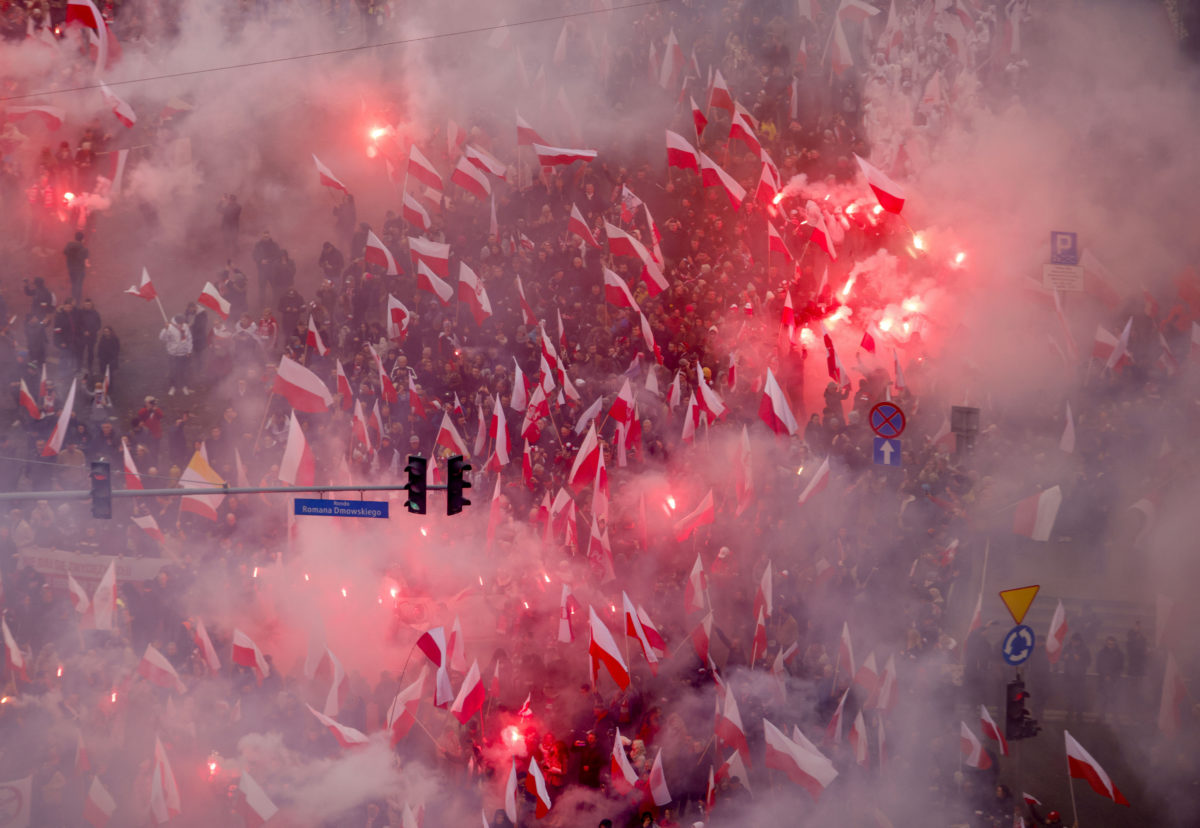As much of Poland celebrated its Independence Day last Friday, a clash between nationalists and anti-fascist activists brought a dramatic halt to the festivities.
According to The Associated Press, opposition politicians in Poland are criticizing police conduct — accusing police of favoritism — after several anti-fascist protesters were detained but no nationalists during a march and counterprotest in Warsaw.
Promotion of totalitarian ideologies is illegal in Poland. But participants of the nationalist march, an annual far-right parade, were seen carrying a banner with the “Black Sun,” a symbol of Nazi SS guards during the Second World War.
Krzysztof Brejza, a member of the political opposition in Poland, said police did not intervene.
“During the Warsaw Uprising in 1944, thousands of Poles died at the hands of German Nazis from the SS. I don’t know why the police didn’t respond to such criminal symbolism in Warsaw, which suffered so much in World War II. On the other hand, demonstrators with democratic views were forcibly removed,” Brejza told The Associated Press.
That same day, in the heart of the city center of Krakow, an anti-Semitic gathering amid Independence Day events added to the pall. Speakers loudly denounced Jewish people, and one man talked about burning Jews while the crowd chanted, “Down with the Jewish occupation.”
The American Jewish Committee strongly condemned the rally. “If this is not a wake-up call, what will be?”
WHEN FACTS GET IN THE WAY
Poland’s Independence Day clash is the latest in a string of struggles that stretch back well into the 20th century. There has been an ongoing — and somewhat successful — revisionist effort to rewrite Poland’s actions during World War II.
According to the New Yorker, Polish authorities in 2016 began investigating the Polish-American historian Jan Tomasz Gross, the author of the 2002 book “Neighbors: The Destruction of the Jewish Community in Jedwabne, Poland.”
Authorities accused Gross of insulting the Polish people for his observation that Poles killed more Jews than Germans during the Second World War.
Two years later, Poland’s senate would pass a controversial bill that outlawed blaming Poland for any crimes committed during the Holocaust.
“We have to send a clear signal to the world that we won’t allow for Poland to continue being insulted,” Patryk Jaki, a Catholic-nationalist deputy justice minister, told reporters in parliament.
In a follow-up statement to the Polish legislation, Yad Vashem, the World Holocaust Remembrance Center in Israel, agreed that there was “no doubt” that the term “Polish death camps” was a historical misrepresentation, but cautioned that “restrictions on statements by scholars and others regarding the Polish people’s direct or indirect complicity with the crimes committed on their land during the Holocaust are a serious distortion. Yad Vashem will continue to support research aimed at exposing the complex truth regarding the attitude of the Polish population towards the Jews during the Holocaust.”
On the eve of the occupation in 1939, “3.3 million Jews lived in Poland — more than any other country in Europe. Their percentage among the general population — about 10% — was also the highest in Europe,” according to Yad Vashem.
By the end of the war, approximately 380,000 Polish Jews were still alive.





